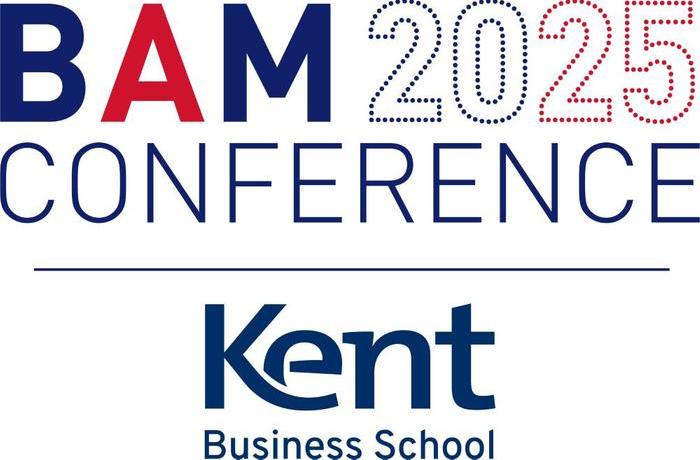
The 39th edition of the BAM Conference will take place from the 1st - 5th September 2025 at Kent Business School, University of Kent.
Dates
MONDAY 1 SEPTEMBER – VIRTUAL CONFERENCE DAY
TUESDAY 2 SEPTEMBER – DOCTORAL SYMPOSIUM
WEDNESDAY 3 SEPTEMBER – CONFERENCE IN-PERSON DAY 1
THURSDAY 4 SEPTEMBER – CONFERENCE IN-PERSON DAY 2 & Gala Dinner
FRIDAY 5 SEPTEMBER – CONFERENCE IN-PERSON DAY 3 (half day)
THEME
On the Border: Management Challenges, Business Opportunities and Disrupted Institutional Contexts
Globalisation, connectivity, and mobility are central to the 21st century business experience and entail the crossing of borders as individuals, goods and services, and cultural values traverse domains in search of new markets, new opportunities, and new lives. Borders can vary in terms of how hard, how flexible, how permeable they are, with ‘border keepers’ and contextual factors impacting on the ability of ‘border crossers’ to navigate them speedily or alternatively turn traversing borders into a gruelling experience. It is at borders that businesses reach out to the rest of the world despite increasing levels of uncertainty, disruption, and transition connected to bordering practices, movements, social and political disruption, and economic change. The University of Kent is in a unique position in relation to the economic, geographical, and cultural border of the UK as it is located 17 miles from the UK border at the main port of Dover, which is itself less than 30 miles across the Channel from the French port of Calais. Borders such as the one at Dover and the rest of the Kent coastline are at the forefront of attempts to both prevent and safely facilitate the hazardous crossing of refugees seeking sanctuary and a better life.
However, borders don’t just occur at geographical points in space or only relate to movement between countries and regions. Across organisations and sectors, all forms of organisational worker – professional and non-professional, senior and junior, virtual and non-virtual – can be conceptualised as ‘daily border crossers’. Interpreted in these terms, individuals are understood to experience regular and everyday ‘border crossings’ between their work and non-work lives. However, this experience of crossing borders – the level of flexibility or rigidity felt – is impacted by organisational status, professional standing, the personal resources available to individuals and their social characteristics. The latter include forms of difference such as class, race, gender, sexuality and disability. Understood in terms of domains, the extent to which individuals can separate or integrate their work and non-working lives when crossing the border between home and work, can be connected to how forms of difference come together intersectionally. How does the possibility of being an integrator of home and work domains, a segmentor, or a combiner of integrating and segmenting border practices, manifest as a source of inequality and what are the consequences of this? What does the emergence of working from home (WFH) and the growth of virtual working mean for everyday border crossing? In what way does the increased blurring of work-life boundaries impact on everyday border crossing between work and home? What can contemporary leaders at all levels of organisation do to ease the experience of everyday border crossing at an individual and organisational level? How does the intensification and extension of work influence everyday border crossing? Finally, how can organisations shape their borders internally and externally with employees, customers, suppliers and competitors so that experiences of border-crossing do not become a hindrance to the business?
The British Academy of Management Conference 2025 hosted by the Kent Business School, University of Kent will examine border crossing in all its forms, taking into account the temporal, spatial, geographical, sociological and psychological transitions that everyday border crossing entails.
KEY DATES
- 7th January 2025: Paper/PDW Submission Opens
- 28th February 2025: Paper Submission Closes - Deadline to submit is 23:59 GMT.
- 28th April 2025: Conference Registration Opens
- 28th April 2025: PDW Submission Closes
- 21st - 30th April 2025: Authors Notified of Paper Acceptance Status
- 6th June 2025: Deadline for at least ONE author of a paper to Register
- 30th June 2025: Final Paper Upload
- 31st July 2025: Deadline for Early Bird Registration
- 18th August 2025: Conference Registration Closes
BAM2024 Conference Highlights
Conference Committee
Chairs
- Professor Patricia Lewis, Professor of Management, University of Kent (Co-Chair)
- Professor Thanos Papadopoulos, Professor of Management, University of Kent (Co-Chair)
Academic Committee
- Professor Ben Lowe, Professor of Marketing, Kent Business School (Social Media(
- Professor Jesse O'Hanley, Interim Dean, Kent Business School
- Dr Abby Hilson, Senior Lecturer in Accounting, Kent Business School (Sponsorship)
- Dr Abdullah Iqbal, Senior Lecturer in Accounting and Finance, Kent Business School
- Dr Vinh Chau, Senior Lecturer in Strategy, Kent Business School (Social Media)
- Dr Maria Balta, Senior Lecturer in Human Resource Management & Organisational Behaviour, Kent Business School (Volunteer Recruitment)
- Dr Preetam Basu, Senior Lecturer in Operations, Management, DAOS Research Lead, Kent Business School
- Dr Pushyarag Puthusserry, Senior Lecturer in Strategy & International Business, Kent Business School
Local Arrangements Committee
- Caroline Hames, Senior Events Coordinator, University of Kent
- Rebecca Smith, Senior Business Development Officer, University of Kent
BAM Representatives
- Justina Senkus, Head of Operations and Events, British Academy of Management
- Lewis Johnson, Conference and Communities Manager, British Academy of Management
- Ambra Risca, Programmes and Events Coordinator, British Academy of Management
- Justin Brown, Communications and Events Coordinator, British Academy of Management
